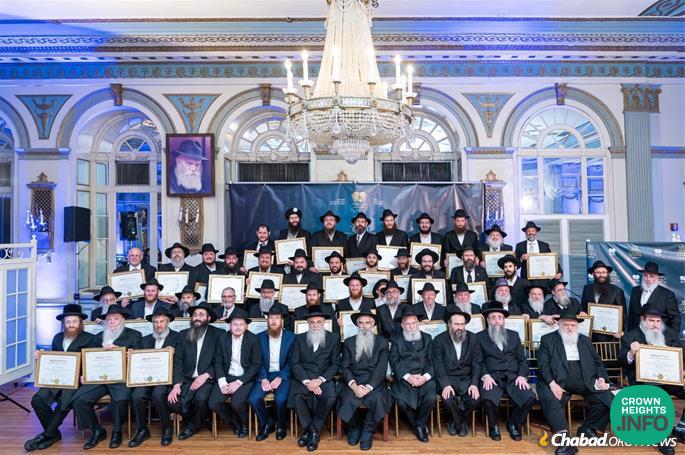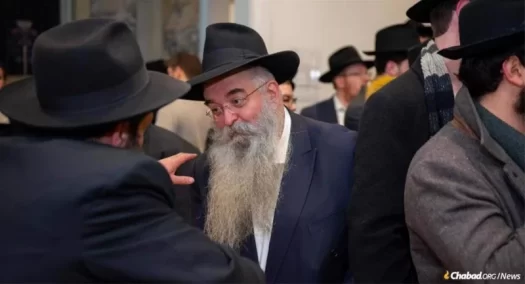
Obituary: Rabbi Zushe Wilhelm, 62, Renowned Torah Scholar and Educator
by Aharon Loschak – chabad.org
Rabbi Zushe Wilhelm, a renowned Torah scholar, author of many Torah works and longtime dean of the high school division of Educational Institute Oholei Torah in Brooklyn, N.Y., passed away on Wednesday night, Jan. 5 (4 Shevat). He was 62 years old.
He served as dean of the central Chabad-Lubavitch high school for 32 years, educating generations of students by being a living example of love for Torah study. Many of his students are now serving as emissaries, rabbis and community members around the world. The Rebbe—Rabbi Menachem M. Schneerson, of righteous memory—was pleased with his appointment at the young age of 30, expressing in a written response: “Much, much appreciation for the news.”
Wilhelm brought a unique brand of care and attention to his position. “He was both exacting and caring at the same time,” said Rabbi Nachman Yosef Twerski, a teacher in the yeshivah. “He would bring an incredibly high level of academics, yet that didn’t detract from his extreme sensitivity and care for his students, keeping up with them with letters in the mail long before WhatsApp.”
The rabbi was also a prolific writer, authoring a number of books, including Ziv Hasheimoit—a work that details the laws and customs of giving a name, was translated into numerous languages and is found on Chabad.org. He also authored a Yiddish translation of the Tehillat Hashem prayerbook, the Passover Haggadah and many Chassidic works.
His love for Torah was boundless, say his students and colleagues, and he had a special knack for “Torah trivia.” Always seeking ways to bring the joy and excitement of Torah to his students, every week he would publish a weekly publication titled Yesh Litmoah, which included trivia questions on the weekly Torah portion and time of the year. He was also very keen on encouraging students to commit their studies to memory, creating a unique incentive program that saw hundreds of students review entire tractates of Talmud by heart.
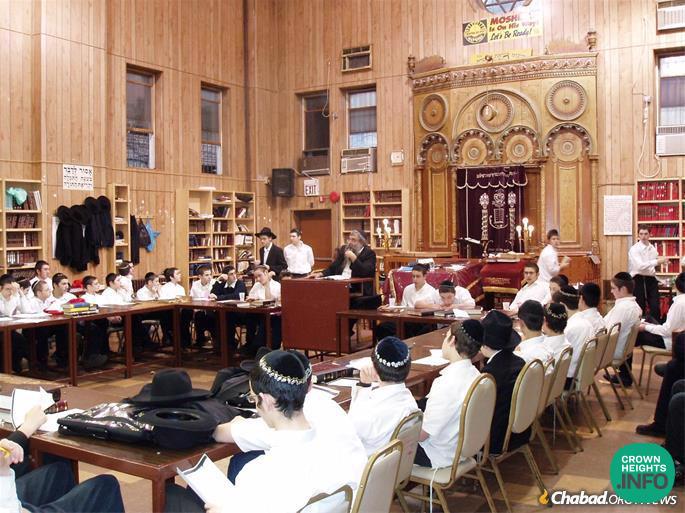
In an effort to disseminate the teachings of Rabbi Schneur Zalman of Liadi, the founder of the Chabad-Lubavitch movement (also known as the Alter Rebbe), Wilhelm drew up sheets that would unpack the text of Rabbi Schneur Zalman’s complex Shulchan Aruch (Code of Jewish Laws) in clear and concise language. These sheets have become a staple for anyone wishing to study the subject in Torah halls worldwide. “Thousands of students have studied the Shulchan Aruch in Rabbi Wilhelm’s merit,” renowned Rosh Yeshivah Rabbi Chanania Yosef Eisenbach attested prior to his passing last year.
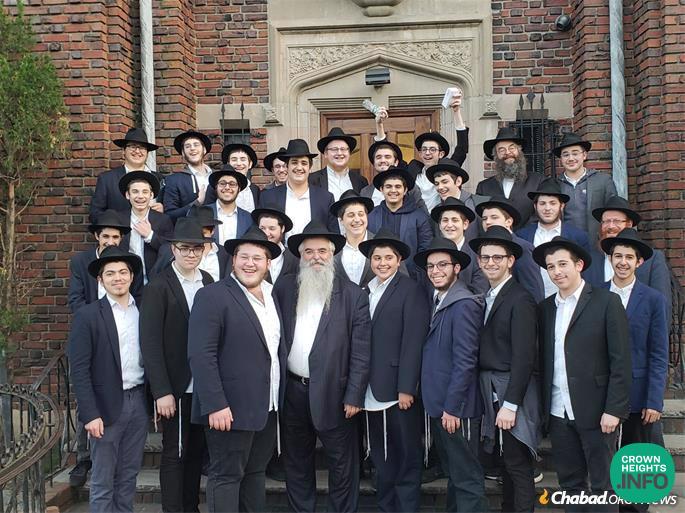
From Brooklyn to Venezuela and Back
Born to Rabbi Avrohom Dovid and Rivka Wilhelm, Yeshaya Zushe Wilhelm was named after his great-grandfather, Rabbi Yeshaya Zushe Shubov, a prominent Chassid known as “the Boider Rov” for the town he presided over during the Czarist era. Later, he served as a rabbi in Moscow under Communist rule. Wilhelm’s Jewish birthday was the 18th day of Elul, which is also the birthday of both the Baal Shem Tov, the founder of the Chassidic movement; and the Alter Rebbe. For his entire life, Rabbi Wilhelm was especially dedicated to learning and disseminating the Alter Rebbe’s teachings.
Young Zushe grew up in Crown Heights, Brooklyn, the epicenter of the Chabad movement, where he basked in the presence of the Rebbe. After studying at Oholei Torah, in 1977, Zushe was sent along with a group of 10 young yeshivah students to Caracas, Venezuela. The Chabad emissary to Venezuela, Rabbi Moshe Perman, wished to spark a Jewish revolution in the city, and he asked for reinforcements from headquarters.
When the young men arrived, they were greeted by a Jewish community undergoing immense spiritual struggles. But before long, a Jewish revolution was underway in Caracas; Wilhelm and his fellow-yeshivah students spent two-and-a-half years in Caracas, making quite an impact in Venezuela.
An avid bibliophile, Zushe was once visiting someone in Caracas whose grandfather had passed away and noticed an old and rare-looking set of Jewish books on the shelf. It turned out to be an old set Me’am Lo’ez, authored by Rabbi Yaakov Culi of the early 18th century. What was especially unique about this edition was that it was printed in the author’s original Ladino, while most editions were printed in a Hebrew translation. Zushe was offered the set, and he managed to secure four of the five volumes and bring them back to the Rebbe’s library in Brooklyn. The Rebbe was immensely pleased with the find and requested the fifth volume.
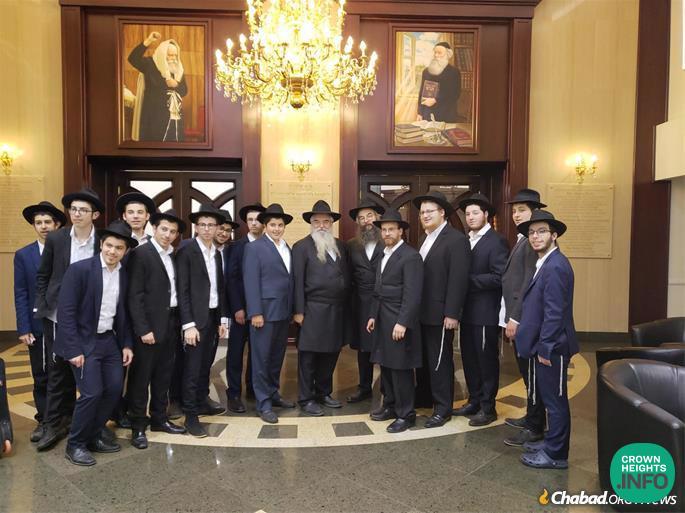
A Panamanian Rescue
The rabbinical students returned to New York in 1981. Following his marriage to Esther Sperlin in 1982, the couple spent several years in Crown Heights, where Wilhelm continued studying and published several books.
In 1986, the Ashkenazi community in Panama requested that Chabad send them a rabbi. Wilhelm, who had learned Spanish in Venezuela, was a perfect fit. The Wilhelms led the Beth El synagogue for three years, during which time, at the Rebbe’s behest, they went far beyond their congregational duties and reached out to the entire community with an array of social and spiritual services.
In 1988, civil war broke out in Panama, and the situation became dangerous. Wilhelm sent his family back to America but remained to be there for any Jews left behind. “Rabbi, when I leave on my personal jet, I will take you,” one congregant told him. Alas, when he left, he forgot to take the rabbi with him.
After several weeks under perilous conditions, electricity was cut in the entire country, and Wilhelm made the decision to leave. He rushed to the airport and somehow was able to secure a seat on the last flight north, leaving on a Friday morning. Not even knowing where the plane was headed, Wilhelm learned that it was en route to Puerto Rico, and only with some quick thinking and help from above managed to make it to Miami minutes before Shabbat.
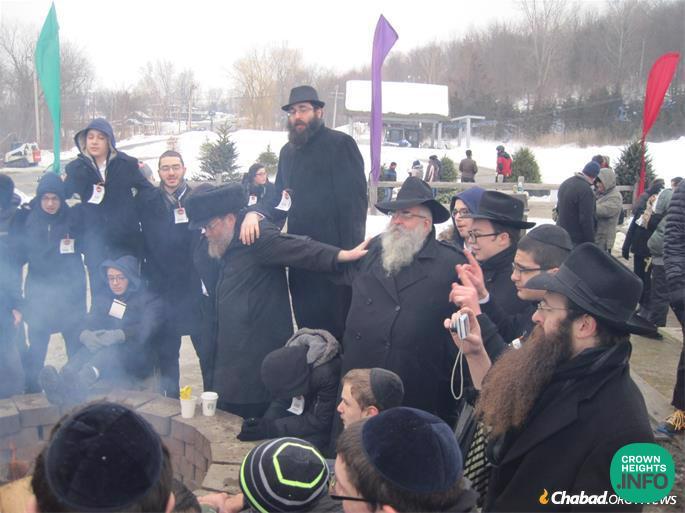
Return to New York and Dean of the Yeshivah
Upon his return to New York, a long and rich chapter of Wilhelm’s life began. He returned to the world of intense Torah study—first as a teacher, and then eventually, he was appointed to lead the Oholei Torah high school, the “Mesivta,”as it is called.
Twerski recalled how a former, particularly challenging student who had maintained a relationship with Wilhelm long after his graduation visited him weeks before his passing and asked: “Rabbi, why did you give me so much attention? I was one of your most difficult students, so why do you expend all this effort?”
“Rabbi Wilhelm responded: ‘They say that the squeaky wheel gets the grease. Precisely because of the noise you would make, I felt the need to bring you close,’ ” Twerski recalled.
Twerski remembered another time when Wilhelm noticed that a certain student’s clothing was disheveled. It was obvious that sadly, his family couldn’t afford anything better. Wilhelm approached the boy and explained to him that the yeshivah had taken notice of his excellence in his studies and wished to reward him accordingly. “In short, Rabbi Wilhelm outfitted the boy from head to toe—all in a respectable way such that he never realized what really happened.”
Even when his own yeshivah was in recess, Wilhelm took of his own personal time to create a “vacation-time yeshivah,” overseeing students who had come home for the holidays and ensuring their Torah studies wouldn’t be abandoned for too long.
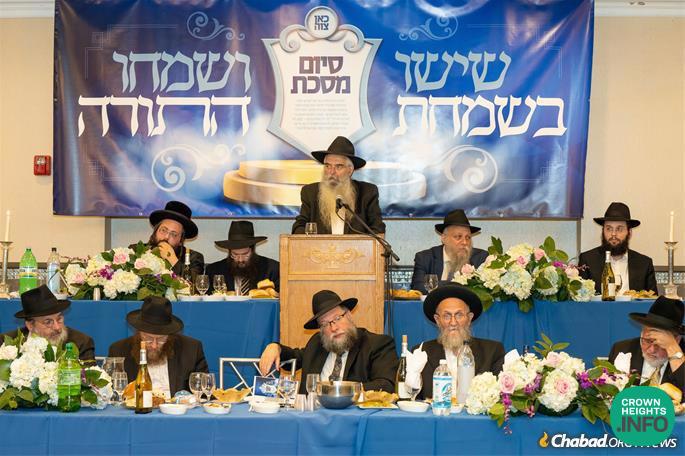
Spreading Torah
In recent years, Wilhelm worked tirelessly to promote Torah study through his support of such organizations like Machon Ohr Hachassidus, a community organization in Crown Heights that publishes Chassidic works in various formats for different audiences.
“One day, Rabbi Wilhelm approached me and spoke of how he heard about what we do,” said Rabbi Avraham Mann, one of the directors of Ohr Hachassidus. “Right then and there, he offered a beautiful space for us to use as an office. Ever since, he was intimately involved, both materially and with the content we publish.”
Wilhelm’s son, Chaim Yisroel, recalled the birth of one of the organization’s particular projects. “My father came home from the supermarket one day and said that he had noticed that they now sell ‘bite-sized’ pre-packaged cakes and cookies to go,” he said. Wilhelm excitedly proclaimed that there ought to be such a thing for spiritual matters as well, bite-sized tidbits of inspiration for people to digest in their busy day-to-day lives. That’s when the popular ‘Daily Lightpoint’ series was born. Today it is published and disseminated throughout the many synagogues in the tri-state area, and has turned into a book series.
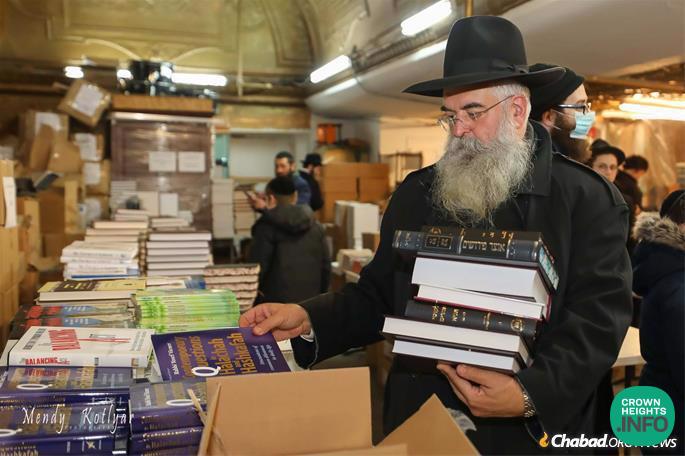
Two years ago, Wilhelm founded the American branch of Lemaan Yilmedu, a rabbinical ordination (semicha) program for adults that provides lay community members the opportunity to learn the legal codes of the Shulchan Aruch with a thorough, down-to-earth curriculum. Hundreds have joined the course over the years.
“I became religious later in my life, so when I joined the study program with Rabbi Wilhelm, I felt very out of sorts with the advanced level of learning,” explained Tuvia Tatick, a Brooklyn therapist. “We were learning complex kosher laws one day, and there was a particular section that as much as I tried, I couldn’t seem to wrap my head around it.”
A few days later, he was walking home from synagogue on the first day of the holiday of Shavuot and bumped into Wilhelm on the street. During the conversation he casually mentioned his ongoing struggle to understand that particular section.
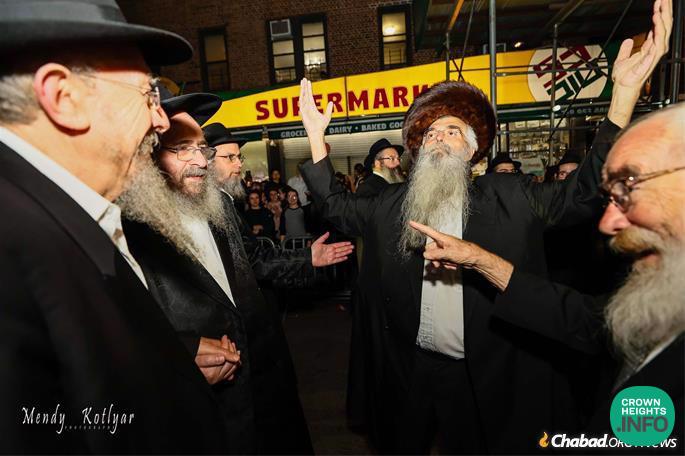
“To my shock, Rabbi Wilhelm immediately pulled me into the nearest shul, pulled the book off the shelf and sat down to study with me,” said Tatik. “We reviewed it together, and patiently and lovingly, Rabbi Wilhelm repeated it over to me three times until I finally understood it.
“My Torah learning was so important to him, he sat there while his entire family must have been waiting at home to start the holiday meal. Not only that, I learned later that he was hosting a formal family simchah,but all that could wait for our Torah study.”
In addition to his wife, Rabbi Wilhelm is survived by their children: Berele Wilhelm (Los Angeles); Chaim Y. Wilhelm (Brooklyn, N.Y.); Levi Wilhelm (Las Vegas); Mendy Wilhelm (Brooklyn, N.Y.); Mushkee Raskin (Montego Bay, Jamaica); Mashee Begun (Brooklyn, N.Y.); Sara Shur (Brooklyn, N.Y.); and Moshe Wilhelm (Brooklyn, N.Y.). He is also survived by his mother, Mrs. Chana Rivka Wilhelm.
He is also survived by his siblings, Mrs. Leah Fradkin – S. Diego, California; Rabbi Moshe Wilhelm – Portland, Oregon; Rabbi Yisroel Wilhelm – Crown Heights; Mrs. Rochel Lapidus – Buenos Aires, Argentina; Rabbi Nachman Wilhelm – Monsey, NY; Mrs. Chaya Sarah Barber – Crown Heights; Rabbi Zalman Wilhelm – Crown Heights; Rabbi Motty Wilhelm – Toronto, Canada.
He was predeceased by his sister, Mrs. Razel Wolvovsky, six weeks ago.
This article was reprinted with permission from chabad.org
